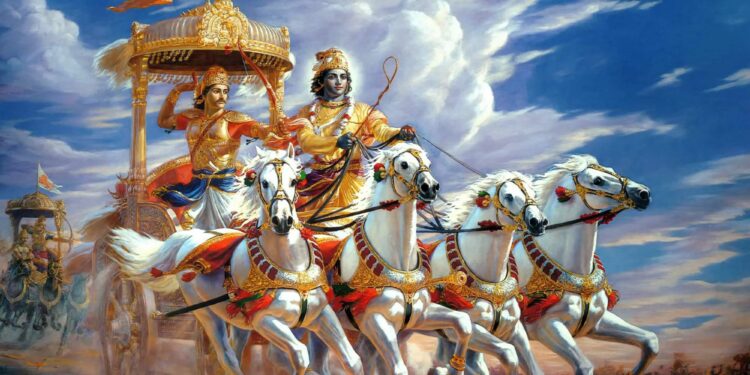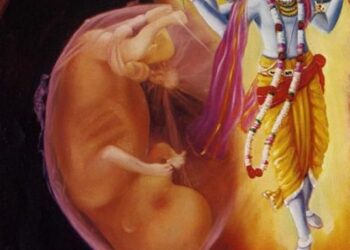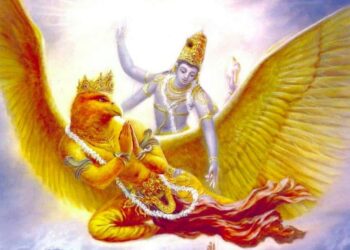TEXT 12
sarva-dvārāṇi saṁyamya
mano hṛdi nirudhya ca
mūrdhny ādhāyātmanaḥ prāṇam
āsthito yoga-dhāraṇām
SYNONYMS
sarva-dvārāṇi—all the doors of the body; saṁyamya—controlling; manaḥ—the mind; hṛdi—in the heart; nirudhya—confining; ca—also; mūrdhni—on the head; ādhāya—fixing; ātmanaḥ—of the soul; prāṇam—the life air; āsthitaḥ—situated in; yoga-dhāraṇām—the yogic situation.
TRANSLATION
The yogic situation is that of detachment from all sensual engagements. Closing all the doors of the senses and fixing the mind on the heart and the life air at the top of the head, one establishes himself in yoga.
PURPORT
To practice yoga as suggested here, one first has to close the doors of all sense enjoyment. This practice is called pratyāhāra, or withdrawing the senses from the sense objects. The sense organs for acquiring knowledge—the eyes, ears, nose, tongue and touch—should be fully controlled and should not be allowed to engage in self-gratification. In this way the mind focuses on the Supersoul in the heart, and the life force is raised to the top of the head. In the Sixth Chapter this process is described in detail. But as mentioned before, this practice is not practical in this age. The best process is Kṛṣṇa consciousness. If one is always able to fix his mind on Kṛṣṇa in devotional service, it is very easy for him to remain in an undisturbed transcendental trance, or in samādhi.
TEXT 13
oṁ ity ekākṣaraṁ brahma
vyāharan mām anusmaran
yaḥ prayāti tyajan dehaṁ
sa yāti paramāṁ gatim
SYNONYMS
oṁ—the combination of letters oṁ (oṁkāra); iti—thus; eka—akṣaram—the one syllable; brahma—absolute; vyāharan—vibrating; mām—Me (Kṛṣṇa); anusmaran—remembering; yaḥ—anyone who; prayāti—leaves; tyajan—quitting; deham—this body; saḥ—he; yāti—achieves; paramām—the supreme; gatim—destination.
TRANSLATION
After being situated in this yoga practice and vibrating the sacred syllable oṁ, the supreme combination of letters, if one thinks of the Supreme Personality of Godhead and quits his body, he will certainly reach the spiritual planets.
PURPORT
It is clearly stated here that oṁ, Brahman and Lord Kṛṣṇa are not different. The impersonal sound of Kṛṣṇa is oṁ, but the sound Hare Kṛṣṇa contains oṁ. The chanting of the Hare Kṛṣṇa mantra is clearly recommended for this age. So if one quits his body at the end of life chanting Hare Kṛṣṇa, Hare Kṛṣṇa, Kṛṣṇa Kṛṣṇa, Hare Hare/ Hare Rāma, Hare Rāma, Rāma Rāma, Hare Hare, he certainly reaches one of the spiritual planets, according to the mode of his practice. The devotees of Kṛṣṇa enter the Kṛṣṇa planet, Goloka Vṛndāvana. For the personalists there are also innumerable other planets, known as Vaikuṇṭha planets, in the spiritual sky, whereas the impersonalists remain in the brahmajyoti.


















